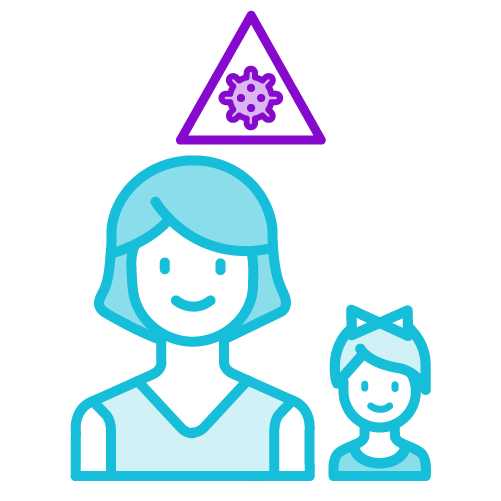More than 95% of cervical cancer cases are caused by HPV.¹
Cervical cancer cases and Women
Ask your doctor about HPV vaccination and cervical screening immediately!

What does HPV and
cervical cancer have to do with me?
All sexually active women are at risk of cervical cancer, regardless of age, relationship status, or number of sexual partners.1
And almost all cervical cancer cases are caused by HPV.2 Find out if you’re at risk of HPV.

As HPV often has no symptoms,2 it may take up to 10-15 years or more for abnormal cervical cells to be detected after initial infection.1

The risk of developing abnormal cervical cell changes after an HPV infection was also found to be similar in younger and older women, regardless of whether they are below or above 25 years old.3
So, if you think that you are not at risk of cervical cancer just because you have been monogamous or married for years, think again.2

I’m not sexually active.
Think you don’t need the HPV vaccine because you’re not sexually active yet? There’s no better time to get protected against cervical cancer than before HPV exposure.
That’s because HPV vaccines are more effective in preventing cervical cancer when administered before HPV exposure.2
Someone who is vaccinated before becoming sexually active helps protect you from the most common and high-risk types of HPV and reduces the chance of spreading the virus to others.2
For most people, HPV clears on its own. But for those who don’t clear the virus, it can cause certain cancers and diseases.

I practice safe sex.
Think you’re not at risk of HPV because you practice safe sex? Even protected sex may not always protect you from HPV, which can cause cervical cancer.
Penetrative sex may be the most common way of getting HPV, but the virus can also spread through intimate skin-to-skin contact with an infected partner.2 And while using condoms correctly can lower the risk of HPV infection, it may not fully protect against infection as the virus can still infect areas the condom does not cover.2
With each new partner, the risk of acquiring new HPV infections, and consequently the risk of cervical cancer, may increase as well.4
For most people, HPV clears on its own. But for those who don’t clear the virus, it can cause certain cancers and diseases.

I’m in a monogamous relationship.
Think you’re safe from HPV because you are in a committed relationship? Having just one partner can still put you at risk of getting cervical cancer from HPV infection.
Since HPV often has no symptoms, even a person who has been with the same partner for life can be infected unknowingly if their partner has undetected HPV infection.2
Additionally, HPV can persist for many years and remain undetected for a long time.2 This means that either partner can still get the virus and pass it on, which may increase the risk of cervical cancer.2
For most people, HPV clears on its own. But for those who don’t clear the virus, it can cause certain cancers and diseases.

I am already sexually active.
Think that having no symptoms means you’re free2 from the threat of HPV-related cervical cancer? The risk of HPV remains even if you’ve been sexually active for a long time.
While it may be true that most sexually active adults have already been exposed to HPV, you may not have been exposed to the high-risk HPV types that can cause cervical cancer.2 With each new sexual partner, your risk of contracting a high-risk HPV type increases.4
For most people, HPV clears on its own. But for those who don’t clear the virus, it can cause certain cancers and diseases.
